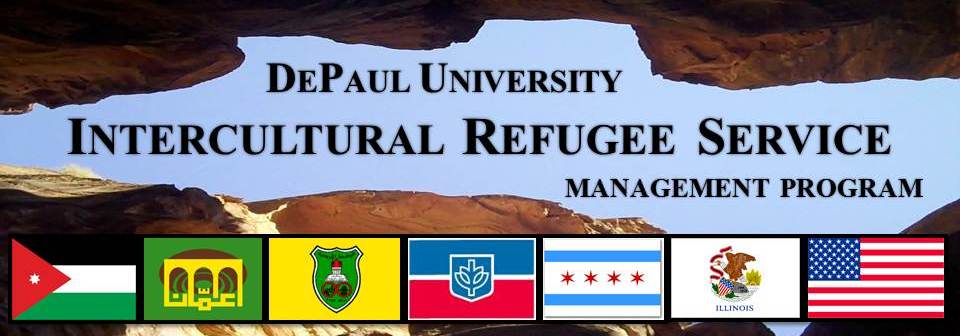
“Each member government of the United Nations has a direct selfish interest in the early disposal of this problem. As long as a million persons remain with refugee status, they delay the restoration of peace and order in the world…They represent in themselves political, economic and national conflicts which are symbolic of the work which lies before nations if peace is to be restored. While they remain a solid mass in assembly centres they deteriorate individually, and collectively they represent a sore on the body of mankind which it is not safe for us to ignore.” (Eleanor Roosevelt, United Nations 1946).
Threads of Change
..by nicole meeuwse..
Sixty-four years ago, Eleanor Roosevelt stood before the United Nations and reminded the heads of state in attendance that it served their national self-interest to resolve the refugee situation completely. There is a feeling of urgency to her speech and I wonder if she what she saw in the representatives before her was the human ability to turn away from the living consequences of war.The urgency Eleanor projected then lives on today. It is picked up as refugees flee only to wait and it nestles in the minds of those who work or volunteer alongside them. While a feeling of urgency is necessary, without practical service delivery it becomes the focus instead of a propelling force addressing systemic issues. Identifying that there are problems with a system is generally not difficult, particularly when those problems include limited resources, inadequate funding, and complaints from participants. What becomes more difficult is to look deeper, to identify areas needing change, and to propose methods of change. Ok, perhaps it is not so difficult to stand around with resettlement co-workers, beverages of choice in hand, endlessly discussing systemic shortcomings with the conversation inevitably leading to the thought, “WHAT were they thinking?? I would …..or what NEEDS to be done is….”. Conversations such as this have merit but they rarely lead to systemic change. Genuine change to a system is difficult; it demands individual sacrifice, rarely is successful on the first try, requires one to create instead of follow a map, and comes with its own set of problems.
A rather famous refugee, Albert Einstein, is on record as having said, “Imagination is more important than knowledge.” While children’s museums and creative writing teachers are arguably too fond of repeating the quote perhaps it is time for refugee programming to elevate the importance of imagination as we seek to solve our problems.
I am not suggesting that refugee programming has been completely void of creative response to the macro (i.e. policy or the economy) or micro level barriers it faces. In fact, there are numerous examples of creative solutions such as the employment training collaborative between United Nations High Commission for Refugees (UNHCR) and Manpower or The New Entry Sustainable Farming Project in Massachusetts. What I am suggesting is that innovative programming is as important as increased funding in improving refugee resettlement in the United States. Approaching systemic issues with creativity and imagination creates an environment where workers and refugees hunt for solutions in obscure places and have fun while searching. Connections, which result from this search, are a web of potential solutions and external insight.
After a year and a half of working in refugee resettlement, it was the quest “to know that which I do not yet know” that brought me to DePaul’s School of Public Service and the International Public Service masters program. Three years later, the same set of reasons led me to sign up for the Refugee Service Management course offered June 2010 in Amman, Jordan. Participating in the study abroad opportunity has been beneficial on several different levels. Academically, it allowed me space to focus for an entire semester on what I do daily but from a different approach, a different frame of mind. As a professional, I work within the system complying with set standards but as a student, I am able to approach my work from the outside. From that vantage point, there is room to pose endless questions and to search for possible answers in a structured manner. However, thinking through every problem and potential solution as a sole individual would take far longer than a semester and it is unlikely that I would be able to step outside both my work and myself enough to attain the sought after perspective. Listening to the questions, thoughts, and perspectives of my peers as it pertained to refugee resettlement was like being multiplied into directions I may not have otherwise gone and with the aid of new thought patterns.
Professionally, the trip offered me the opportunity to learn how refugee resettlement is approached in another country, how the barriers we face are similar, and to compare solution strategies. Specifically, as part of our trip we had the opportunity to meet with several types of women’s economic collaboratives. The programs, generally all having begun at the grass-roots level, provide a means for women to contribute to the economic security of their families in a culturally appropriate, self-directed, childcare friendly manner. The programs work. Whether buying surplus milk from farms and turning it into yogurt or sewing bags and blouses out of the Palestinian keffiyah the women involved have entered the marketplace and, at least from an outsiders perspective, on their own terms. This is not to suggest that economic problems simply disappear or that larger issues, such as the right to return, are mitigated through income generation. Rather, it is recognition of the importance of self-directed employment programming. A programming approach I would like to see be incorporated in the US Refugee Resettlement system.
The question of course, is whether this blog posting is simply a different venue for the conversations had at dinner parties with beverages in hand or if from it – and the course it is based on – a new type of refugee employment programming will come.
Photo Credit: Nicole Meeuwse

No comments:
Post a Comment